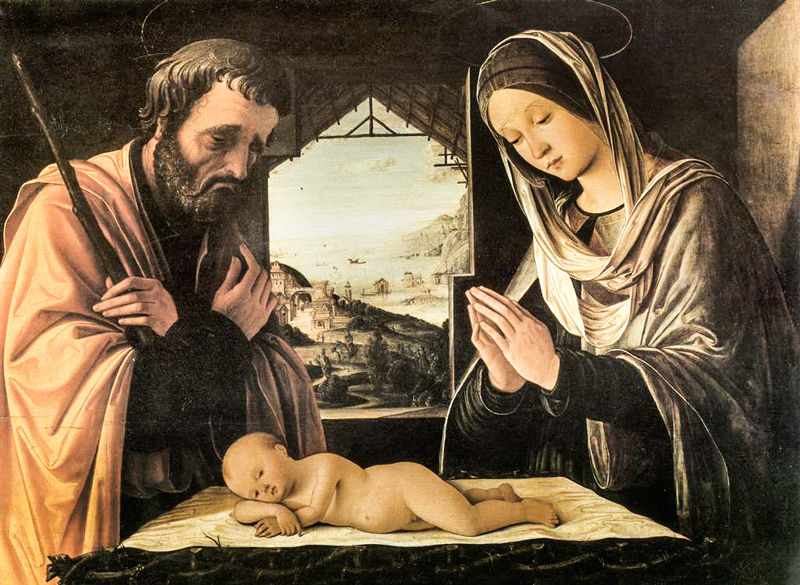
It seems that each year Christmas comes earlier. At one time, retailers unveiled Christmas advertisements and decorations after Thanksgiving. Now Halloween immediately gives way to the trappings of December 25th. Perhaps next Christmas really will come in July!
It’s a surprise to many that the first Christian festival was not the birth of Christ. Instead, the first Christians marked Easter as the primary annual feast and each Sunday as the new sabbath commemorating the day of resurrection.
The centrality of the resurrection in early Christian discipleship can be seen in St. Paul’s first Letter to the Corinthians. There, he states emphatically “if Christ has not been raised, then empty too is our preaching; empty, too, your faith.” The obligation of attending the Lord’s sacrifice each Sunday became a norm to keep this very focus at the forefront of Christian consciousness.
As a liturgical celebration, the commemoration of the birth of Christ does not seem to have been widespread until after Emperor Constantine’s legalization of Christianity in A.D. 312. Christians could stop worshipping in catacombs and reflect more deeply and openly on the fullness of the new advent initiated by God in Christ.
Although much speculation had reigned in the early Christian era about when Christ was born, no dates were standardized. One scholar once wrote pithily, “there is no month to which respectable authorities have not assigned Christ’s birth!”
Still, not until Christians were free to worship was there any liturgical commemoration of those awesome days. After Constantine’s conversion, he began to discourage the various devotions to pagan gods that had characterized civilization because they often involved human sacrifice to placate angry deities. The completion of the first St. Peter’s Basilica in Rome near the 25th of December in the mid fourth century seemed the perfect occasion to standardize the festival of Christ’s birth.
It is most likely that the former pagan feast of Natalis Invicti, or birth of the unconquered, on which the sun was worshiped each December 25th, is responsible for the assignment of Christ’s birth to this date. Christian apologists like Cyprian had centuries before attempted to bring divine truth to those who worshipped the sun, writing, “O, how wonderfully acted Providence that on that day on which that Sun was born, Christ should be born.”
Indeed, Christ described Himself as the “light of the world.” Neither the humble manger, nor Herod, nor death itself conquered Him. St. Joseph’s Davidic ancestry followed by his adoption of Jesus linked Christ to the House of David.
The Lord’s tender care for the marginalized showed He was the “righteous branch” God promised David and the prophets. Raised in Nazareth, which means “branch-town,” and called a Nazarene, or “branchian,” the Gospel of Jesus Christ had imminent credibility.
Jesus of Nazareth’s birth was a new advent unlike the discovery of the wheel, printing press, or even penicillin. His “Dies Natalis” (birthday) fulfilled God’s promises to begin the defeat of the final enemy. Let the Christ-Mass unfold daily!

